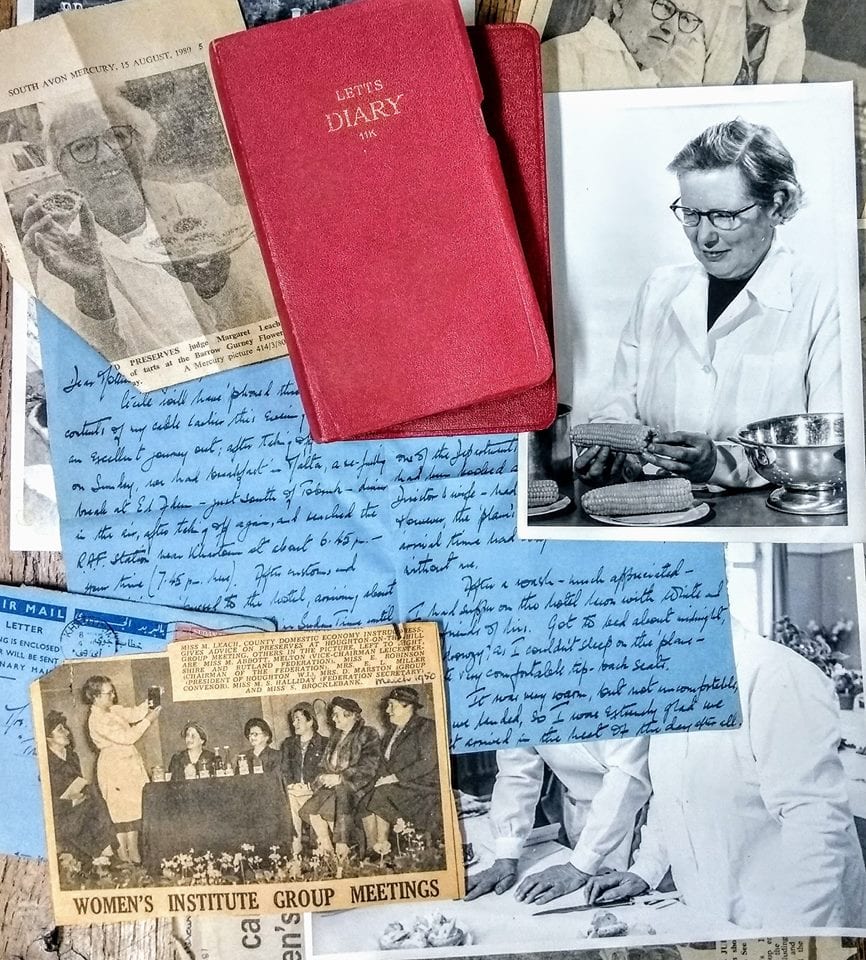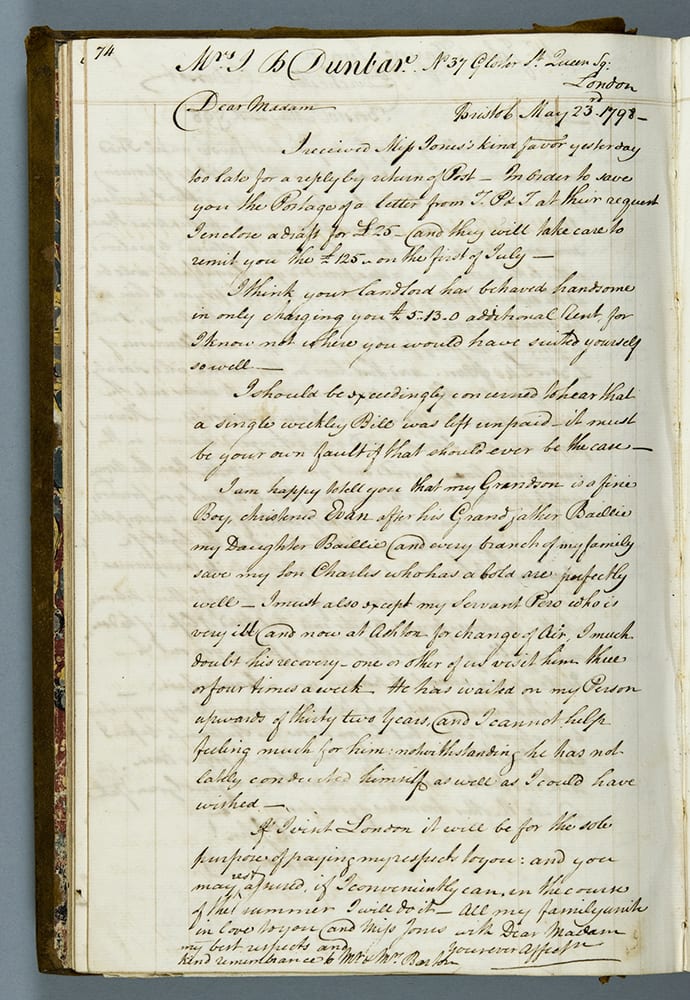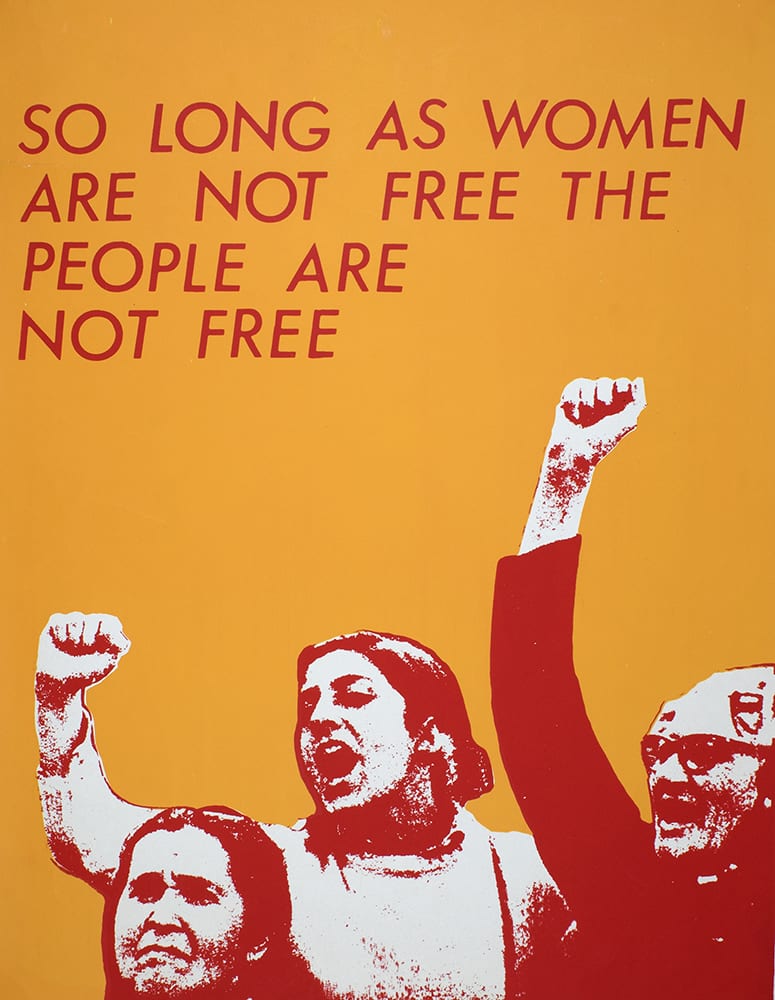
Papers relating to Margaret Leach (DM2701).
This summer I spent a wonderful two months as an intern with the Special Collections team, based in the Arts and Social Sciences Library. My main responsibility was supervising the Reading Room. This meant getting to grips with the archive’s vast collection and retrieving documents for readers. I became familiar with some of the archive’s most fascinating collections, from feminist archive posters to the 18th Century diaries of the Pinney family (DM58). Another of my key responsibilities was to work through Special Collection’s paper catalogues, eventually entering the data into the archive software CALM so that it could be searchable by the public on the Special Collections online catalogue.

John Pinney’s Letter concerning Pero’s health. Pinney Letter Book 14, page 74 (DM58).

Poster in the Feminist Archive South Collection (DM2123).
I was also given the opportunity to catalogue the papers of Margaret Leach (DM2701), which were donated to the archive several years ago and form part of the Long Ashton Research Station collection. Margaret kept a diary for every year of her life, a hugely impressive feat. It was strange and wonderful to trace the life of this woman from the age of 11 – with entries on the hours spent in an air raid shelter during WWI – through to her flourishing scientific career and rich retirement.
Another fascinating part of the collection are the bundles of letters from Margaret’s brother, Thomas Leach, positioned in Nigeria as a military veterinarian, to Margaret and their mother, and Ida. Reading the accounts of holidays, neighbourhood gossip and correspondence of everyday life it is difficult not to feel privileged by the window of access into the life of this close family.
Margaret’s senior role as head of the Domestic Preservation Section of Long Ashton Research Station was the pinnacle of a long and illustrious career. She would frequently travel the UK giving lectures on food preservation to amateur and professional groups. A hugely accomplished person, Margaret is just one example of the many remarkable women whose papers lie in the archives waiting to have their stories told.
One of the things I will take way from my two months as intern was the passion and commitment of the team I was working with. The lengths to which they went to help researchers, as well as their incredible knowledge of the collections, meant that not only did I learn a lot but feel enthused the archive is in the hands of a team dedicated to sharing it with the public.
